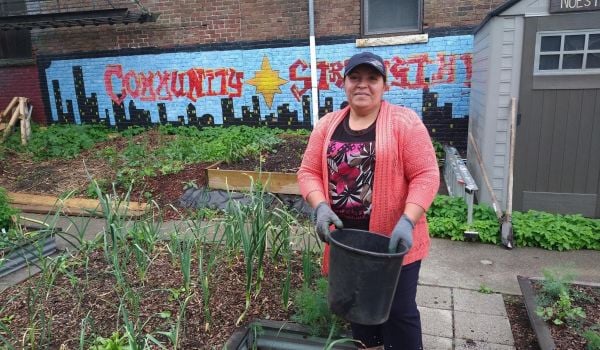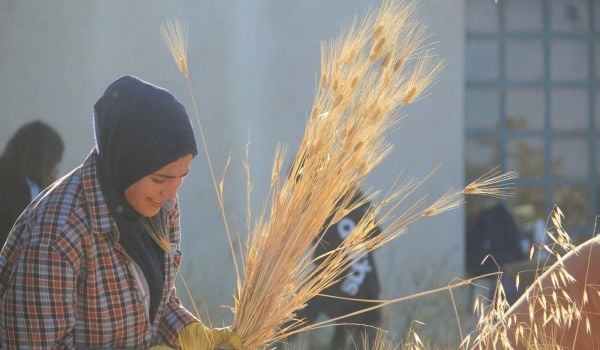Over the past few years, Detroit community organizer Ora Wise has seen national media outlets hash and re-hash a certain narrative about the city’s developing restaurant scene, highlighting white chefs who grew up outside the city or elsewhere, who were drawn to Motown because of its reputation as a so-called blank canvas.
“It’s such a settler, colonist story, you know,” says Wise, sitting at Detroit’s Trinosophes café, not long before it closed for a remodel this summer. “It’s like, ‘look, we just have this empty land, with no people that we can then build our settlement on.’ ”
What those narratives often miss is the legacy of self-reliance around food within Detroit’s black and brown communities — which make up more than 80 percent of the city’s population.
That legacy was on full display at the 20th annual Allied Media Conference, which took place earlier this year. Wise was one of the lead organizers behind the Dream Café, a three-day whirlwind experiment involving 14 chefs, six from Detroit and eight visiting for the conference, who all took on the challenge of feeding conference attendees in a pop-up setting using ingredients sourced almost entirely from Detroit’s network of urban farms.
“The urban farming movement here in Detroit is predicated upon solidarity movements here in the city, which it has been for a long time standing,” says Shane Bernardo, a Detroit-based community organizer who served as the conference’s local food systems coordinator.
One by one, a chef would enter the kitchen at Cass Café, which hosted the pop-up experiment, prepping and dishing out hot plates by the dozen and then simultaneously helping the next round set up as they left. It was like opening and closing 14 new restaurants in the span of three days. Chefs worked alongside local urban farmers, harvesting crops of greens, root veggies and berries daily and developing menus on the fly depending on what they were able to pick.
It got so hectic one day that one of the servers from Cass Café’s regular crew walked off the job during lunch. Ederique Goudia, program associate for the business incubator FoodLab Detroit, says she went without sleep for days to make sure things ran smoothly.
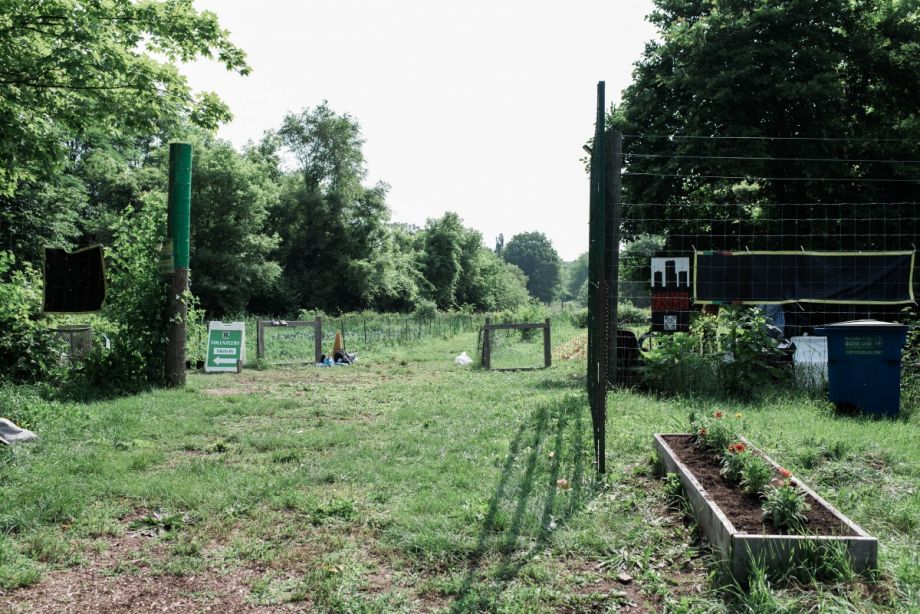
D-town Farms, a 7-acre urban farm in Detroit. (Photo by Valaurian Waller)
Allied Media Conference organizers liken the annual convening to an ecosystem where media-makers and youth gather around the power of storytelling, strategizing and mobilizing for a more just and resilient world. Wise, who’s been involved with Allied Media Conference for several years, had previously focused on educating youth to develop multimedia for social movement building. More recently, she and others have been looking at how to incorporate food programming into the mix, the thought being that in order to combat the effects of inequality among marginalized groups, one needs to be nourished properly as well.
The Dream Café evolved out of a series of community dinners over the past few years with conference participants, which aimed to foster a re-imagining of the food system with communities of color at the center, instead of at the margins.
Bernardo highlights the city’s long history of solidarity movements among people color, dating back to the days of the Underground Railroad — Detroit was one of its final stops before African Americans made their way to freedom in Canada — to the Great Migration when poor blacks fled the Jim Crow South.
Malik Yakini, founder of the Detroit Black Community Food Security Network, which runs the 7-acre D-Town Farms in Detroit’s Rouge Park neighborhood, was among the urban farmers with Bernardo recruited to source ingredients for the pop-up. Yakini says that the event helped to connect the dots between some local chefs and the farm and it did create an economic boost. “This is another step in the direction of building relationships with people who share a similar vision for society,” says Yakini.
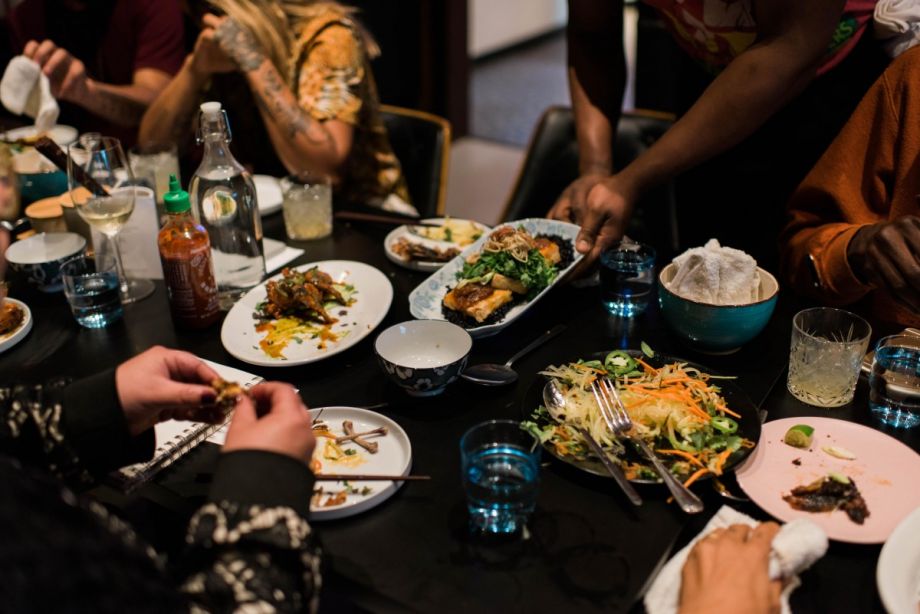
(Photo by Valaurian Waller)
“A lot of the chefs involved were discovering connections between their ingredients or some of their dishes that were a huge part of their cuisine,” Wise adds.
Over the next few months, Wise says, she’s working with conference organizers to figure out how to build on this year’s experience for next year’s conference.
Meanwhile, at a post-Dream Cafe debriefing, FoodLab Detroit and chefs compared notes on how they each fared. In all, the nonprofit’s members brought in about $9,000 during breakfast and lunch service. In addition, ticketed dinners hosted by visiting chefs at eateries across southeast Michigan brought in even more.
Discussions have already started about the possibility of further use of Cass Cafe as a popup dining venue, bringing in more revenue to both chefs and the restaurant. Goudia, who along with business partner Dameon Gabriel is also planning to open a Cajun-inspired eatery, music and cultural space in the Detroit’s West Village neighborhood later this year, said that Dream Cafe inspired her to be more intentional about creating popup events centered around people of color and using local food sources.
Meanwhile, some of the participating local chefs are looking to start using local produce from the urban farmers they met in the process. Wise says that conversations are being had between some of the Detroit chefs and NYC cooks about collaborating in some fashion.
“Whenever colonized or marginalized people discover connections between each other’s histories and stories and struggles, they become stronger, we become stronger,” says Wise.

Serena Maria Daniels is an award-winning Chicana journalist and founder and editor of Tostada Magazine, a Detroit-based digital food & culture journalism platform that centers stories and perspectives of immigrants and people of color.
Follow Serena .(JavaScript must be enabled to view this email address)

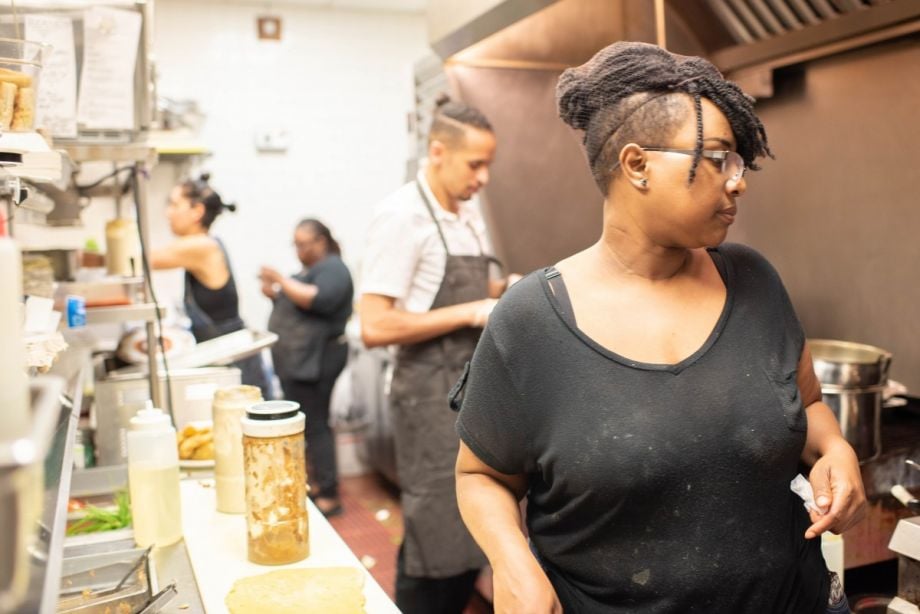
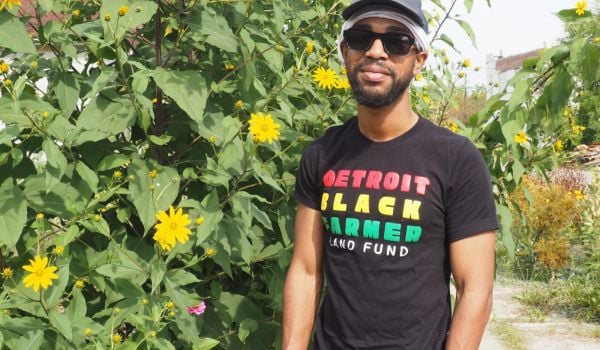



_600_350_80_s_c1.JPEG)
